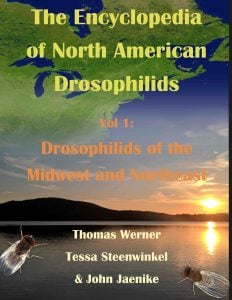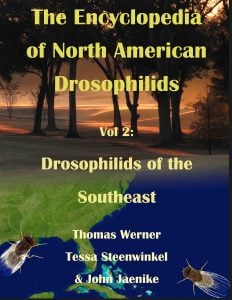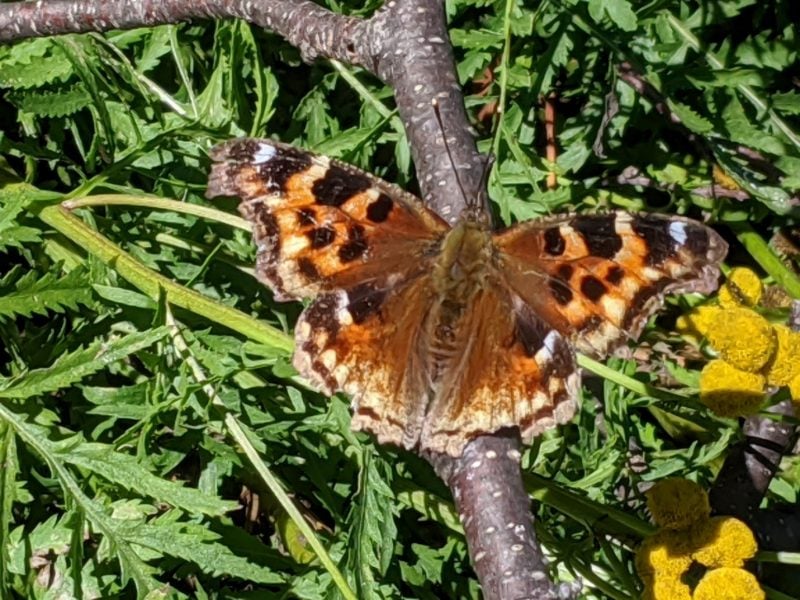
Thomas Werner shares his knowledge on Husky Bites, a free, interactive Zoom webinar this Monday, April 4 at 6 pm ET. Learn something new in just 30 minutes (or so), with time after for Q&A! Get the full scoop and register at mtu.edu/huskybites.
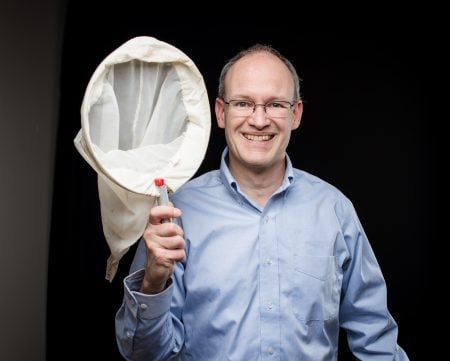
What are you doing for supper this Monday night 4/4 at 6 ET? Grab a bite with Dean Janet Callahan and Biological Sciences Associate Professor Thomas Werner. Joining in will be one of his former students, alumna Tessa Steenwinkel.
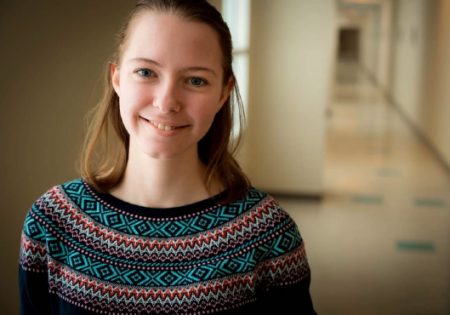
Steenwinkel earned her BS in Biochemistry and Molecular Biology and her MS in Biology/Biological Sciences, all at Michigan Tech. She works now as an Educational Assistant at Madison Country Day School near Madison, Wisconsin, and she will start a PhD program at Baylor College of Medicine in Houston, Texas, this fall.
During Husky Bites, they will share the most beautiful butterflies, moths, and fruit fly species of the Keweenaw Peninsula. And we’ll learn much more about their Encyclopedia of North American Drosophilids. Be sure to bring your questions!
Dr. Werner started studying insects as a childhood hobby, at age 10, when a beautiful butterfly flew in the window of his family’s 9th floor apartment in Erfurt, in East Germany. Many years later, his interest in insects is still strong, as he leads a fruit fly research lab at Michigan Tech.
Werner’s research bridges the miniscule and the massive in an effort to better understand the mechanisms behind several unique features of fruit flies, such as the developmental genetics of color pattern formation as well as those of mushroom toxin resistance, among several other questions. Some of their research questions aim to provide insight into human cancer development.
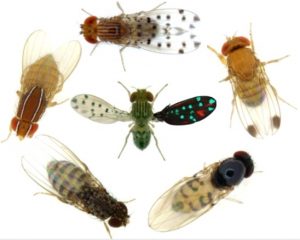
Werner also teaches courses on general immunology, introduction to genomics, developmental biology, and he used to teach genetics and with a genetic techniques lab. He’s been bestowed with the state-wide Michigan Distinguished Professor of the Year Award 2021 and won Michigan Technological University’s Distinguished Teaching Award twice (both in the non-tenured and the tenured categories).
Callout quote:
“Werner is the epitome of the scholar-teacher. His enthusiasm in the classroom is remarkable, as is his devotion to mentoring more than 100 undergraduate researchers,” says David Hemmer, dean, College of Sciences and Arts.
“Thinking about the long winters here, I would call teaching a powerful antidepressant.”
Steenwinkel started at Michigan Tech in the fall of 2017 by joining the Pavlis Honors College. She majored in Biochemistry and Molecular Biology-Biological Sciences with a minor in Pharmaceutical Chemistry. Originally from the Netherlands, Steenwinkel has lived in the United States since she was 12 years old.
“On Michigan Tech’s annual Preview Day in March 2017, Tessa visited my lab at Michigan Tech as a high school student,” Werner recalls. “I offered her a job on the spot, because I felt that she would become the best student I have ever mentored. And I was correct about that: As my undergraduate research assistant and master’s student, she has published two books and 10 papers with me, while she won 8 university-wide and national awards!”
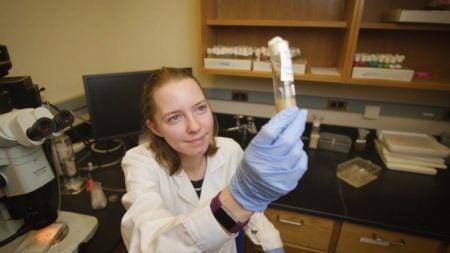
“When I walked into the lab, I knew that this could be the place for me,” adds Steenwinkel. “After getting started at Tech, I immediately reconnected with Dr. Werner and essentially started working in the lab the next day. I worked there for over four years, working alongside grad students, leading my own project, and managing the lab even when Dr. Werner went on sabbatical in Singapore. I was always so grateful to have Dr. Werner as a mentor.”
During her first year, Steenwinkel went from assisting in Werner’s research lab to becoming a co-author on his book, Drosophilids of the Midwest and Northeast, with John Jaenike, a professor of biology at the University of Rochester. The three later published a second book together “Drosophilids of the Southeast”, published under the umbrella name “The Encyclopedia of North American Drosophilids.” Both books welcome researchers, teachers, and young students alike into the amazing world of flies and the diversity of their potential use in research.
The books also include a significant outreach component that speaks to young children about science and nature in the form of a bedtime story about fruit flies written by Steenwinkel. Open-access books, they can be downloaded for free here and here.
While at Michigan Tech, Steenswinkel became the first recipient of the Soyring Foundation Scholarship. John Soyring, Tech alumnus and Pavlis Honors College External Advisory Board member, established the scholarship for Pavlis Honors students expressing interest in research and innovation related to water quality management, renewable energy, or solutions to prevent and cure cancer.
Prof. Werner, what sparked your interest in biology, fruit flies and genetics?
I am a biologist by heart. It all started in former East Germany when a butterfly entered my bedroom on the ninth floor in the middle of the city. On that July morning in 1981, I started collecting butterflies as a 10-year-old boy. This moment defined my life, and today I am associate professor of genetics and developmental biology.
Family?
I have a wife Megan, a daughter Natalia (10), and two sons: Oliver (7) and Oscar (5).
Any hobbies? Pets? What do you like to do in your spare time?
As a hobby, I collect and rear butterflies and moths. I like camping (and collecting fruit flies on these trips for my next field guides). I also have a dog named Frosty, who also likes camping.
Tessa, what sparked your interest in science?
My brother with Down Syndrome first got me interested in biology. From there, I started to learn about genetics, development, and diversity. This is what brought me to Michigan Tech and to start working in Dr. Werner’s lab, where he was using fruit flies to model human cancer. When I started working there, he had just published his first book on fruit flies, and I was immediately fascinated by the beauty and diversity of these small bugs.
Hometown, family?
I’m originally from the Netherlands. I grew up there with my parents and two younger brothers. In 2012, we moved to Baton Rouge, Louisiana, before moving to Madison, Wisconsin, in 2014. In 2017, I decided to start college at Michigan Tech, where I obtained my undergraduate and master’s degrees.
Any hobbies or pets? What do you like to do in your spare time?
When I’m not in the lab, I enjoy running outside and teaching ski lessons to the local kids. When you live in Houghton, you have to make the best out of it. I’m currently getting ready to start my PhD. I currently have two very enthusiastic turtles.
